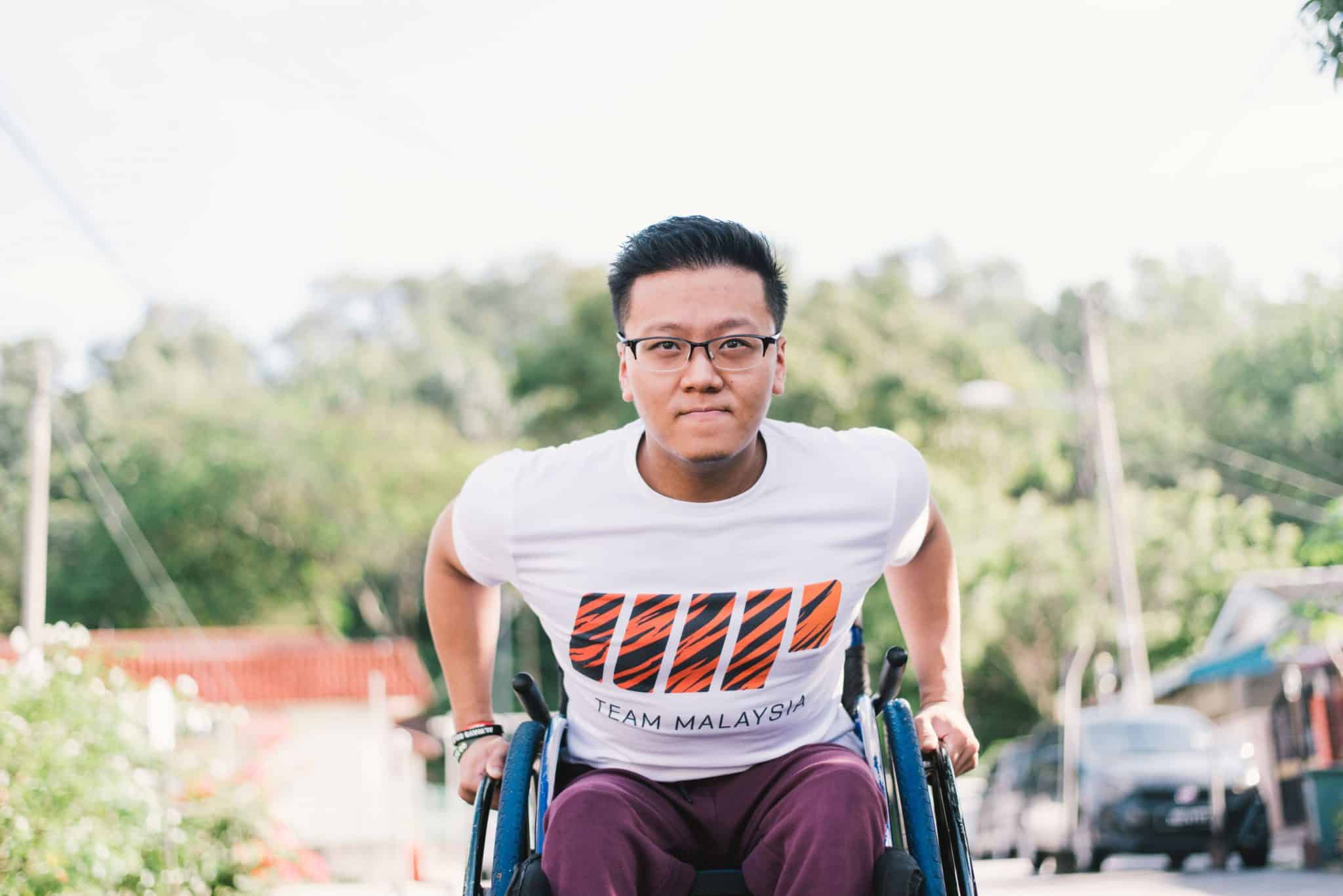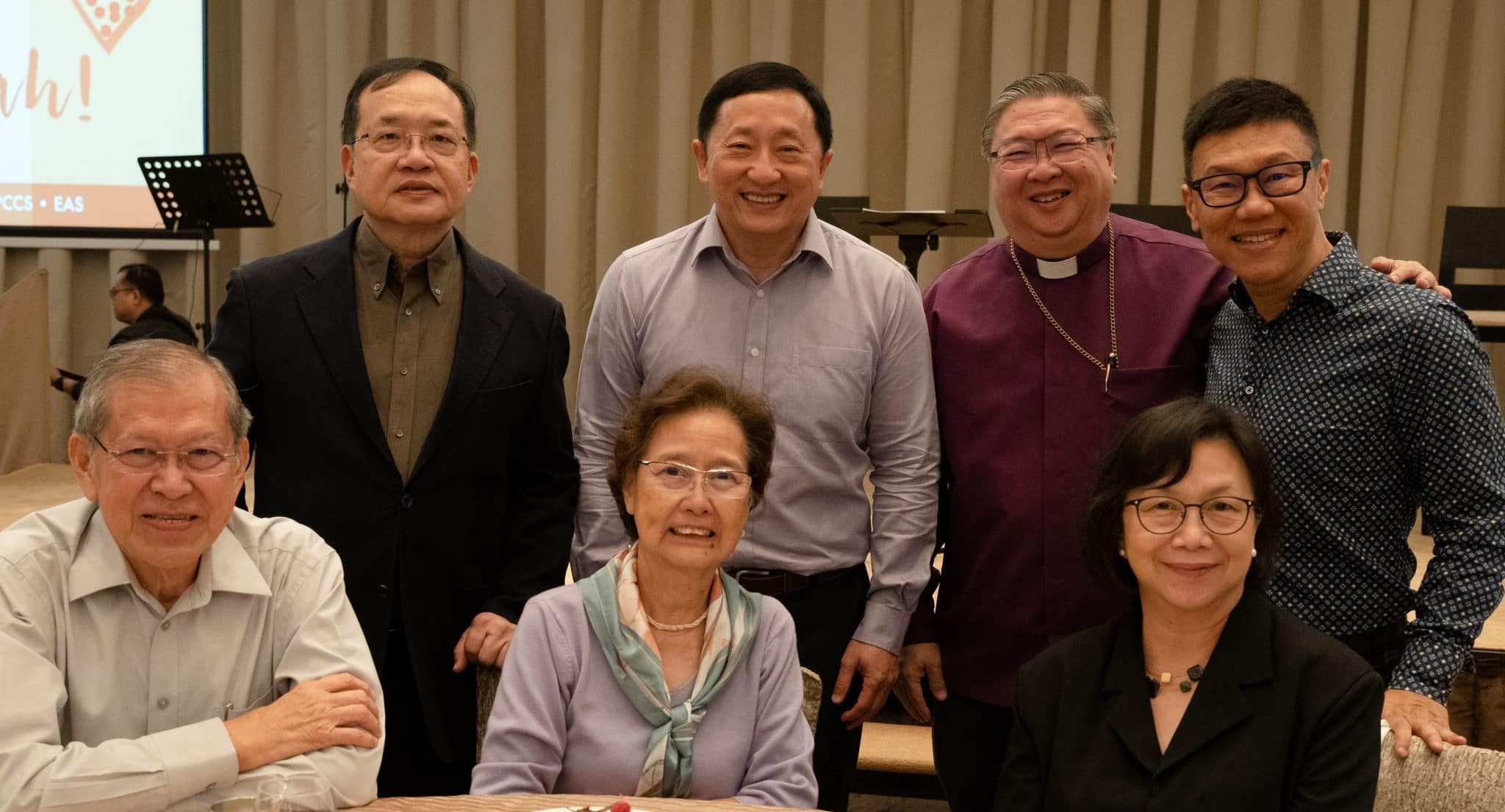“God told us to stay”: They remained after the Fukushima triple-disaster to help the afflicted
by Rachel Phua // April 26, 2019, 7:34 pm
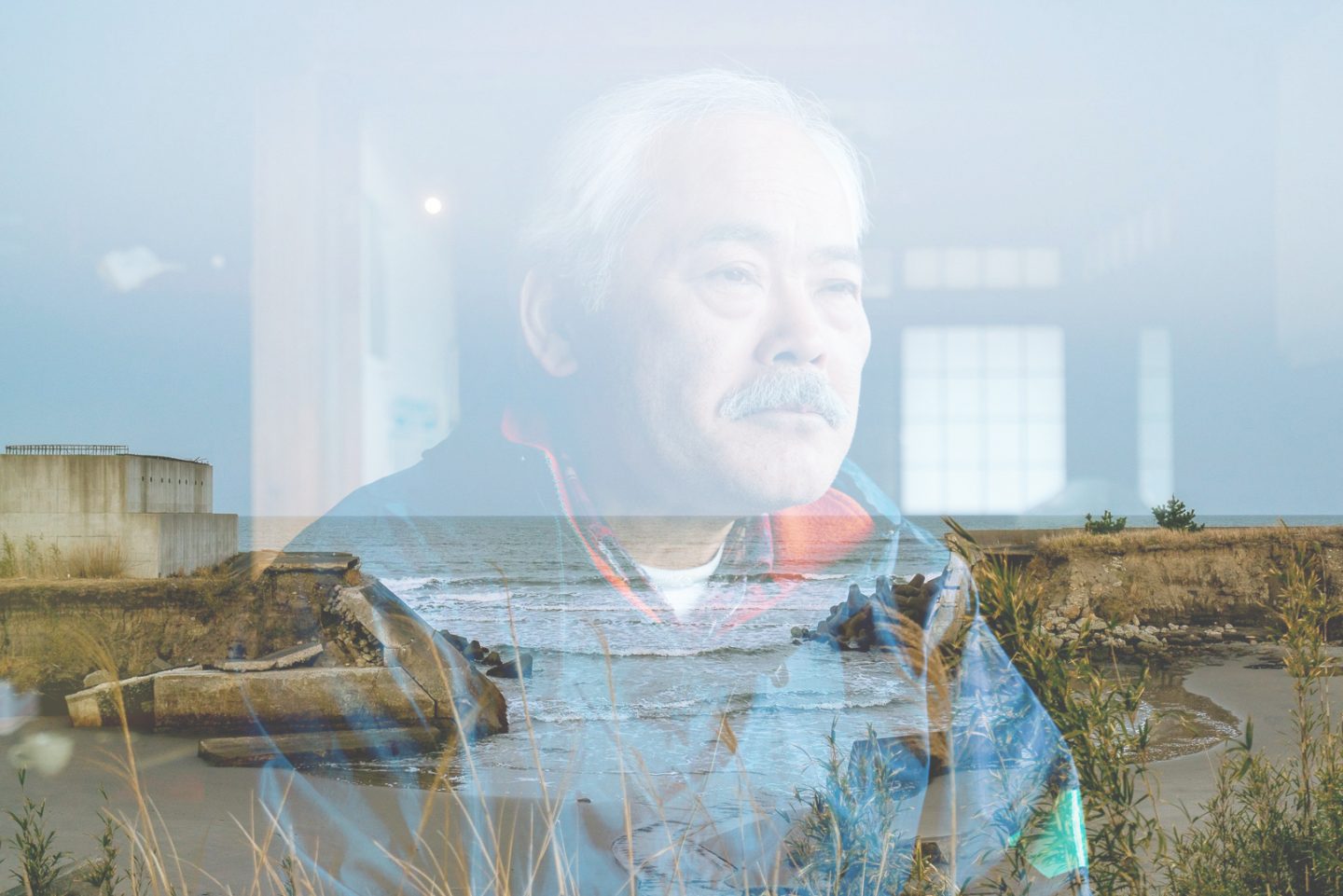
During a trip to Fukushima, Salt&Light spoke to three parties of Japanese believers who either remained in the afflicted area or traveled there to offer a ministry of presence. All photos by Rachel Phua.
The Fukushima 50.
The employees from the Fukushima Daiichi nuclear power plant are forever etched in our memories as the epitome of courage and selflessness.
When the Tōhoku earthquake and tsunami shook Japan on 11 March 2011, a related series of nuclear accidents created a triple disaster. These 50 employees remained at the nuclear power plant after 750 other workers were evacuated, in order to stabilise the plant and contain the disaster.
But they are not the only heroes who refused to abandon their post.
After the 3.11 triple calamity, more than 160,000 people were evacuated from Fukushima prefecture in Japan. These people lived in the towns surrounding the Fukushima Daiichi power plant.
At the peak, over 60,000 of them lived outside of the prefecture. Some, distrustful of the updates on declining radioactive levels, still refuse to move back.
But a minority has stayed.
During a trip to Fukushima in March 2019, Salt&Light spoke to three parties of Japanese believers – quiet heroes – who either remained in the afflicted area or traveled there to offer a ministry of presence.
Eiji Sumiyoshi
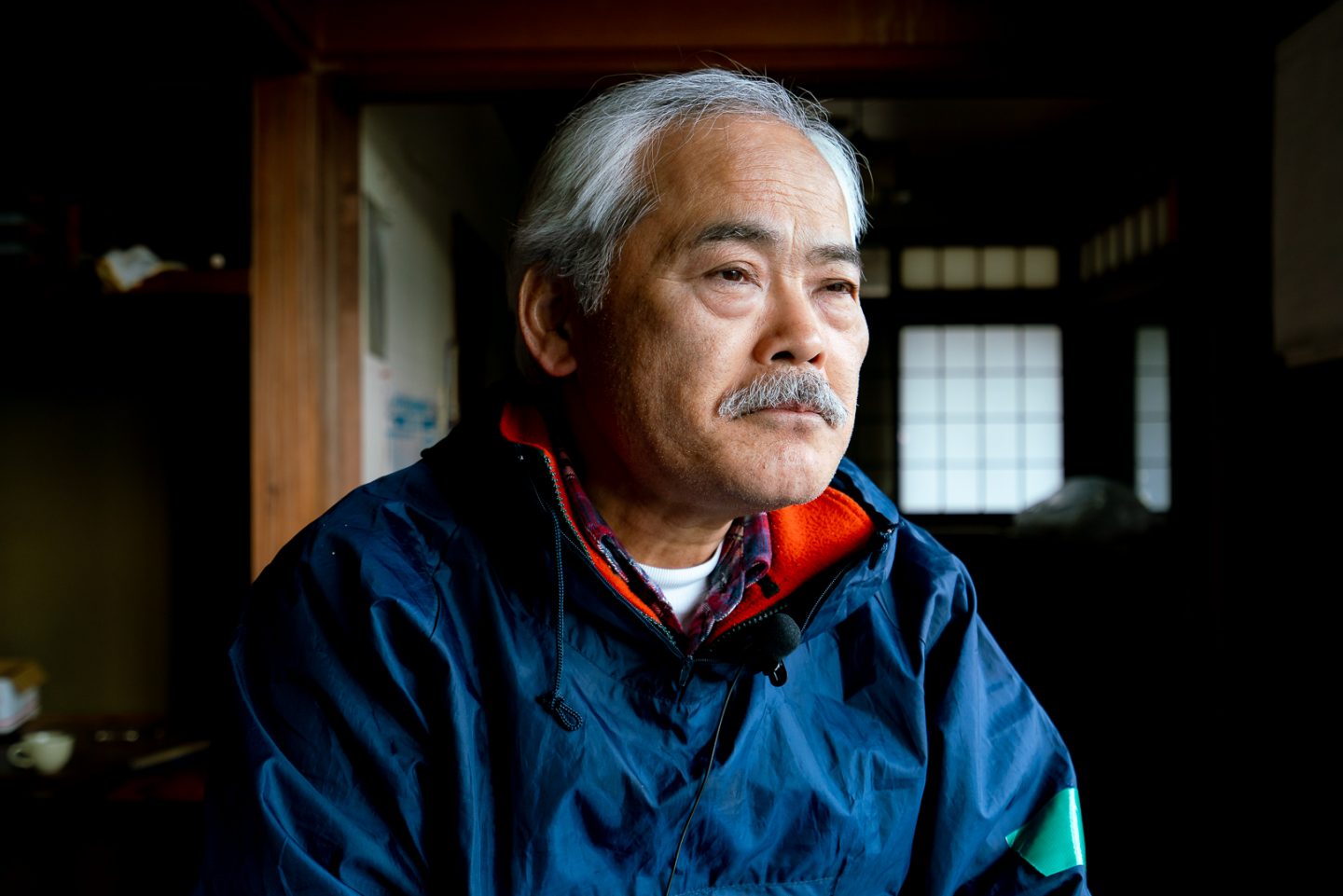
Pastor Eiji Sumiyoshi stayed in Fukushima to support the relief efforts after God told him: “I’m staying here in Fukushima to take care of the people who need me the most. Are you abandoning me?”
Days after news about the nuclear meltdown at the Daiichi plant, Reverend Sumiyoshi stayed put in his home, on the second floor of Nakoso Christ Church, a church he had led for the past four years in Iwaki city, 70km south of the accident.
People were telling him things such as “the nuclear power plant is very dangerous”, or “we will have another tsunami”, but he and his family stayed in limbo.
Then, one night, in a dream, he saw Jesus walking towards Daiichi. At the same time, Jesus said to the reverend: “I’m staying here in Fukushima to take care of the people who need me the most. Are you abandoning me?”
Would Reverend Sumiyoshi be like the disciples who abandoned Jesus when He was arrested before His crucifixion?
“Whose voice shall I listen to?”Reverend Sumiyoshi asked himself. It had to be God’s.
When he woke up, he knelt down and wept. “Lord, thank you, I’ll stay here,” he remembers crying out to the Lord.
From then on, his mission was to “live with the people God has surrounded me with”.
Reverend Sumiyoshi soon turned Nakoso Christ Church into a relief distribution centre. Residents could walk in to collect provisions.
More than 200 volunteers from Japan and overseas came to support him. Within five months, they served more than 1,400 neighbours.
At 66, with another church to lead, Pastor Sumiyoshi has been praying fervently for a Timothy or Titus to lead this church plant.
Those who walked into the church were touched to see people from all nations hard at work, and some began to attend the Sunday services, getting baptised eventually.
It’s been eight years, and Reverend Sumiyoshi is still putting in effort to restore Fukushima. He is manually repairing an old house donated by a church member in Tomioka town, looking to turn it into a church by fall this year. Tomioka lies 10km south of Daiichi and together with the adjacent Okuma town, hosted the now-defunct Fukushima Daini Nuclear Power Plant.
But at 66, with another church to lead, Pastor Sumiyoshi has been praying fervently for a Timothy or Titus to lead this church plant.
He perks up when asked what foreigners can do for Fukushima. “Come and live here,” he quickly said, pointing to the floor. “We need public health professionals, farmers, people who can teach the elderly IT skills, farmers, or even just people who can advocate for Fukushima, to tell people it’s safe.”
Akiko Okawa, Teru Fujiwara & Yuko Matsusaka
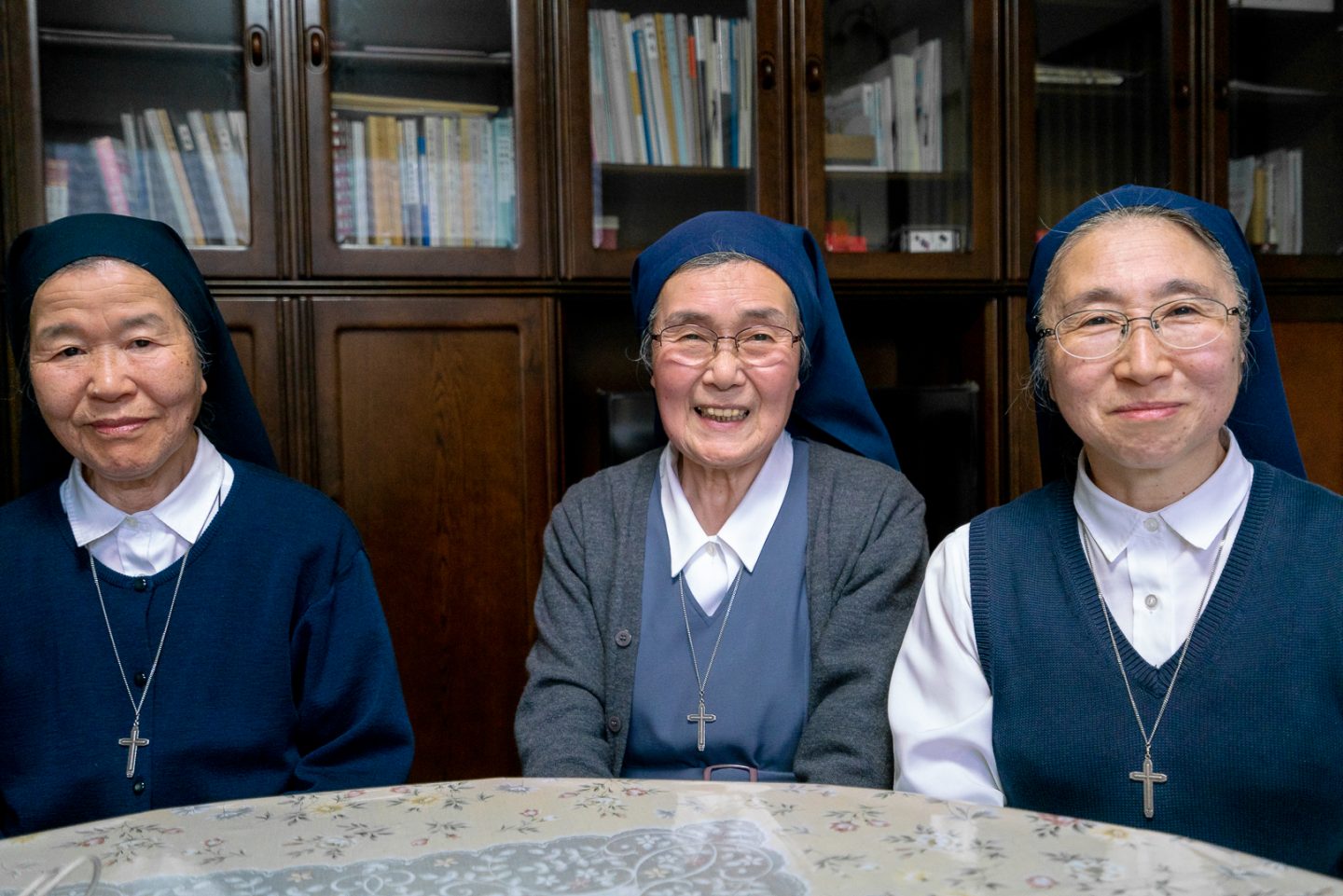
Sisters Akiko Okawa, Teru Fujiwara and Yuko Matsusaka (left to right). The three sisters moved together to Naraha after spending three years in Miyagi prefecture participating in relief work, as they wanted to continue their ministry with the victims.
Sisters Akiko Okawa, 82, Teru Fujiwara, 78, Yuko Matsusaka, 69, are from the Sisters of the Visitation, a Catholic order based in Kamakura city, a seaside town just south of Tokyo.
The three sisters moved to Tohoku to continue their ministry of living among, and befriending, the victims of the disaster.
Living up to their name – the order’s mission is to visit and comfort those who are suffering – the three sisters moved to Miyagi prefecture shortly after 3.11 to participate in relief efforts.
After three years, their term was up, but they didn’t feel like their job was done.
Instead of moving back to their convent, the three sisters started to look for a place in Tohoku to continue their ministry of living among, and befriending, the victims of the disaster. Upon hearing that the 20km evacuation zone around the crippled nuclear reactor was slowly opening up, they decided that one of the towns would suit them.
It was easier said than done. Realtors and government officials were reluctant to help the sisters since they didn’t have any practical skills on paper. They weren’t considered “useful”, Sister Fujiwara said.
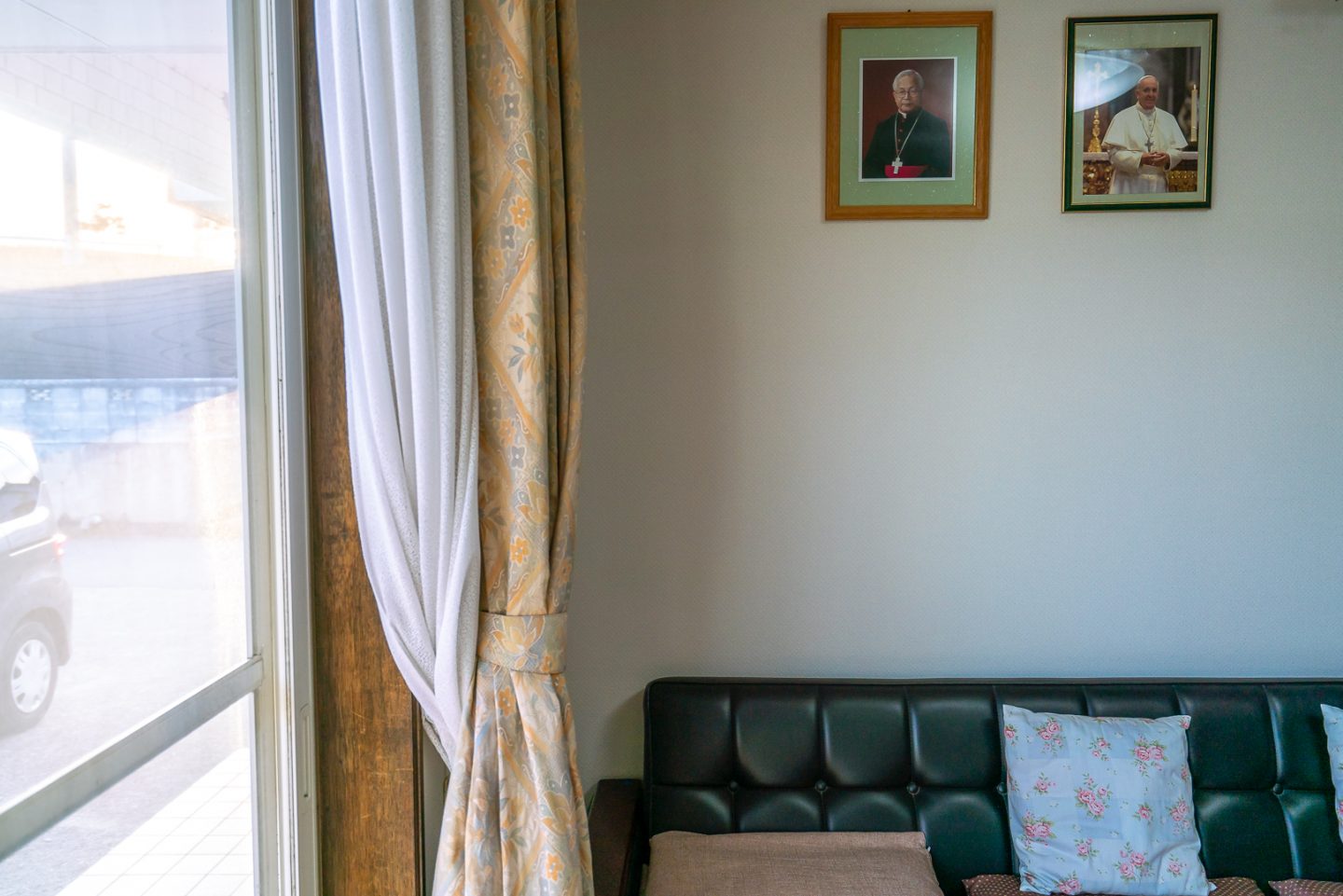
The sisters’ rented home in Naraha is frequented by visitors they have befriended over the years in Naraha. A picture of the Pope Francis and Bishop Martin Tetsuo Hiraga, the bishop of Sendai, hangs on their living room wall.
They eventually managed to rent a house in Naraha in end-2015 after a year of waiting, through the assistance of other Catholics living in the area. The town of Naraha lies south of Tomioka, and reopened in September 2015.
Their daily schedule revolves around praying for Naraha, paying visits to their neighbours’ homes, or welcoming the latter to theirs for tea. On occasion, they help out at the newly opened local bakery, and make it a point to frequently participate in the town’s activities, said Sister Matsusaka, as she unfolds the pieces of indigo-dyed cloths they made at a recent community event.
Having been in Naraha for more than three years, the sisters have slowly built up a rapport with the people despite the initial reservations from the small town’s long-time residents, said Sister Okawa.
“Sometimes people will ask us, ‘What are you doing here?’
“Our response: ‘We live here.’”
Makoto and Motoe Ishiguro
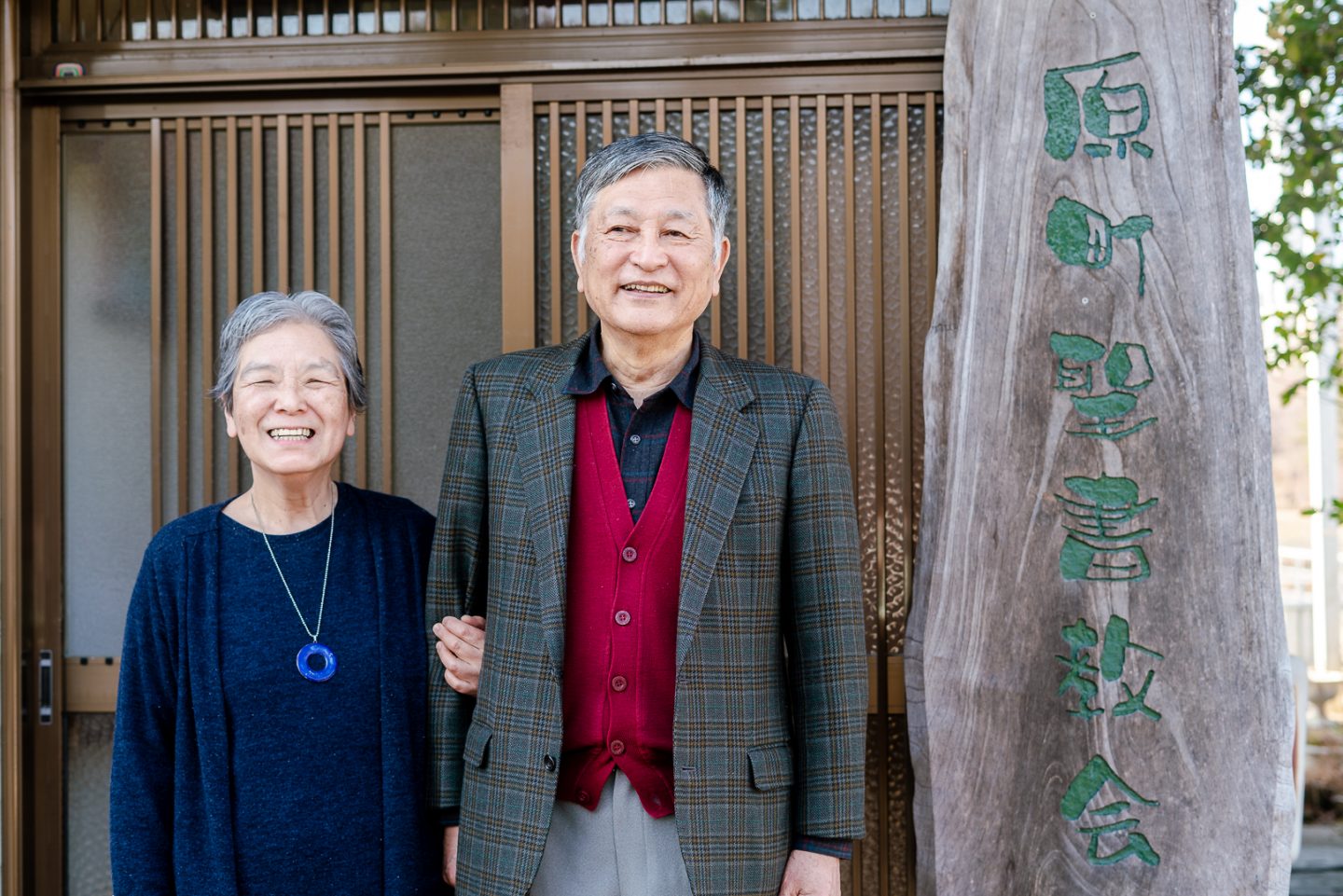
Pastors Motoe (left) and Makoto (right) Ishiguro decided to stay in the coastal city of Minamisoma even though friends were urging them to voluntarily evacuate. They wanted to continue to minister to the elderly folks who did not have the financial means to leave town.
The 3.11 incident was a painful wake-up call for Pastor Makoto.
On the pulpit, he had often preached about fully trusting God in our walk, but Pastor Makoto, 72, was far from living it out.
In 1997, the pastor left his denomination to start Haramachi Bible Church in Minamisoma, 22km north of Daiichi, as a non-denominational church.
To support his family and the church, he took up various part time jobs at one time: Night shift personnel at the hospital, a wedding officiator and town council member. The independent streak was just a cover-up for his pride.
After the earthquake and tsunami occurred, Pastor Makoto and Motoe drove their children and grandchildren inland to Fukushima city, but husband and wife chose to stay in town to look after the elderly residents who did not have the finances to evacuate (most areas of Minamisoma were not part of the compulsory evacuation zone).
Only three people turned up for church, but the worship felt even more profound, as they reflected on God’s protection.
During this chaotic period, Pastor Makoto was prompted to read Proverbs 30:7-9 – he realised that his assurance was not founded on God.
The church held their next service on March 20th. There were only three people who turned up, but the worship felt even more profound, as they reflected on God’s protection. For Pastor Makoto, he found a glimpse of grace amidst the rubble, as he reflected on his past arrogance (Psalm 119:71).
The couple continued to stay in Minamisoma while most of the other residents vacated the city. Only a fraction of the congregation came for every week’s service. Some Sundays, it was just the two of them, but they carried on.
Discouragement led to burnout. After a year, the couple took a break and stayed for a few months in Tokyo, at a local church’s invite, before returning.
As people trickled back, and professionals helping with relief work moved to town, their congregation has grown to more than 15 today. They are praying to see more young people, Pastor Motoe, 71, said. Though the current population is more than 80% of pre-disaster figures, thousands of young and middle-aged residents never returned.
Meanwhile, the pastors have launched an outreach programme. In 2017, the church began a monthly book club on Ayako Miura, a well-known 20th century Catholic writer, at the community library. By February this year, there were 14 attendees.
The pastors are encouraged by their growing ministry. Now, the dream is to build a share house for the ageing congregation, said Pastor Motoe – an idea that was raised during their 20th anniversary meeting in 2017 – so that everyone will be able to attend service and support each other, in a “house of love”.
“God told us to stay”: They remained after the Fukushima triple-disaster to help the afflicted
We are an independent, non-profit organisation that relies on the generosity of our readers, such as yourself, to continue serving the kingdom. Every dollar donated goes directly back into our editorial coverage.
Would you consider partnering with us in our kingdom work by supporting us financially, either as a one-off donation, or a recurring pledge?
Support Salt&Light
